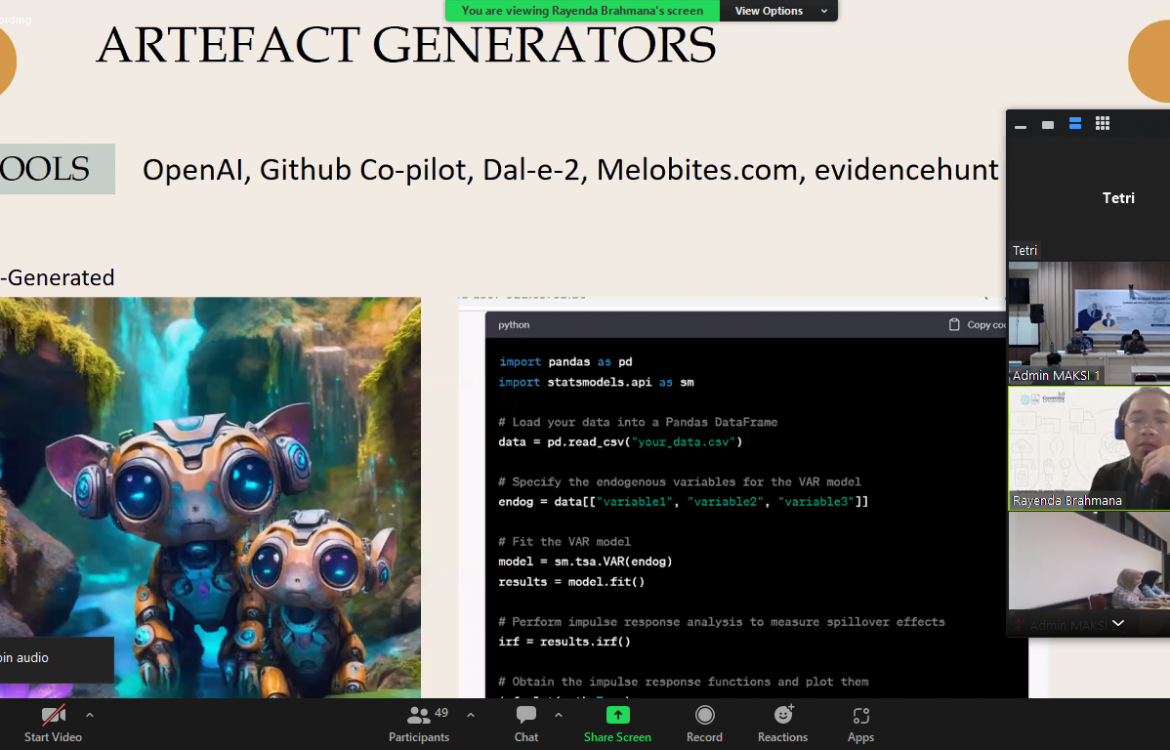
Presenting Two Speakers, Master of Accounting Study Program Holds Academic Research Workshop in the Artificial Intelligence Era
The Master of Accounting (Maksi) Study Program, Faculty of Economics and Business (FEB), Universitas Sebelas Maret (UNS) hosted an “Academic Research Workshop During Artificial Intelligence Era,” Wednesday, June 21, 2023.
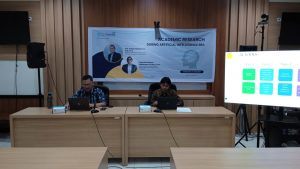 The hybrid event was held in Teleconference Room Soedarah Soepono Building FEB UNS and Zoom Meeting presented by Rayenda Khresna Brahmana, S.E., M.Sc., Ph.D., Lecturer in the School of Economics, Finance, and Accounting, Coventry University, and Prof. Doddy Setiawan, S.E., M.Sc., Ph.D., Professor at FEB UNS.
The hybrid event was held in Teleconference Room Soedarah Soepono Building FEB UNS and Zoom Meeting presented by Rayenda Khresna Brahmana, S.E., M.Sc., Ph.D., Lecturer in the School of Economics, Finance, and Accounting, Coventry University, and Prof. Doddy Setiawan, S.E., M.Sc., Ph.D., Professor at FEB UNS.
Plt. (Acting Officer) of. the Head of the Master of Accounting Study Program FEB UNS, Dr. Wahyu Widarjo, S.E., M.Si., CRP., CFrA., in his remarks, said that this event is part of regular activities in MAKSI FEB UNS. “We at MAKSI FEB UNS hosted regular activities like this each semester, at least once. In the future, we will try to increase the frequency to host the event twice in one semester under various topics and we strive to invite speakers from one of UNS’ international partners. We hope that this activity can enrich students’ insight and deepen their knowledge,” he explained.
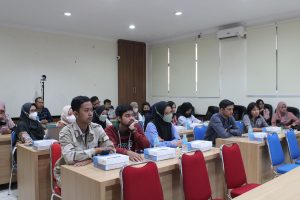 He further states that the development of technology today develops rapidly, not only in the industrial sector but also in the academic field. One of the phenomena currently developed in the academic field is the use of Artificial Intelligence (AI) in academic research. Of course, most students are familiar with ChatGPT and Google Bard.
He further states that the development of technology today develops rapidly, not only in the industrial sector but also in the academic field. One of the phenomena currently developed in the academic field is the use of Artificial Intelligence (AI) in academic research. Of course, most students are familiar with ChatGPT and Google Bard.
“If we look at the current news, mostly reported on how academics respond to the emergence of AI. We can use that technology but it should not violate academic ethics. Like a knife, if in the hands of the right person it will be used for good activities, for cooking, cutting vegetables, and producing something good. But if it falls into the hands of the wrong person, the knife can be used for bad things, robbery for example, I hope this short description helps,” he explained.
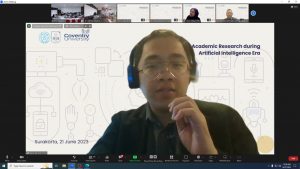 In his material, Dr. Rayenda explained four topics related to AI, namely traditional VS Contemporary research, Tools Objectives, Practical Examples, and Ethical Issues. He explains that AI tools have been around since the 90s but at different levels. Type 1 is the most basic AI, this type refers to Translation Software, which we often use like Google Translate. Type 2 includes Spellcheckers, Predictive Text, Paraphrasers, Grammar Checks, and Speech to Text (Grammarly, Quillbot, ChatGPT, Dragon). Type 3 includes Essay Boots and Text Generators (Chat GPT, Quillbot, Preplexity.ai, Chimp Writer). While Type 4 AI is the highest level, including Programming Code, Graphics, Artworks, Maths, and Music (Github Co-Pilot, DAL-e-2, Melobites.com).
In his material, Dr. Rayenda explained four topics related to AI, namely traditional VS Contemporary research, Tools Objectives, Practical Examples, and Ethical Issues. He explains that AI tools have been around since the 90s but at different levels. Type 1 is the most basic AI, this type refers to Translation Software, which we often use like Google Translate. Type 2 includes Spellcheckers, Predictive Text, Paraphrasers, Grammar Checks, and Speech to Text (Grammarly, Quillbot, ChatGPT, Dragon). Type 3 includes Essay Boots and Text Generators (Chat GPT, Quillbot, Preplexity.ai, Chimp Writer). While Type 4 AI is the highest level, including Programming Code, Graphics, Artworks, Maths, and Music (Github Co-Pilot, DAL-e-2, Melobites.com).
Dr. Rayenda said students could take advantage of the technology but shall remain cautious against the use of AI. “I often say, we treat these AI tools as assistants, and assistants are not always right. Thus, we still have to review their responses. Don’t assume that technology can’t be wrong, and just simply copy all the results. Every time I use ChatGPT, I will review the result again, to determine which one is wrong,” he reminded.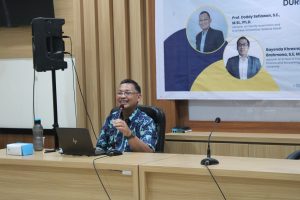
Dr. Rayenda also directly gives some examples of how AI cannot provide a highly reliable result in helping academic tasks. In line with Dr. Rayenda, Prof. Doddy emphasized that AI offers many conveniences to facilitate academic activity, but a review is a must to ensure the quality of work.
“ChatGPT is very helpful for us, but one thing I would like to emphasize to students, you must have the ability to review the quality of work yourself. The ability to review is very important. For example, literature review-related tasks can be accelerated, but still, you must be able to understand the result independently. Do not let yourself rely too much on Chat GPT, resulting in a contrasting output between your written manuscript and presentation, where you write well but cannot deliver your ideas seamlessly,” he reminded.

